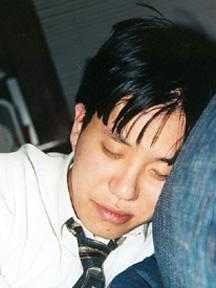
It used to be that when one became naturalized as a U.S. citizen, one had the option of selecting a name other than one's birthname without the burden of additional paperwork - a convenience no longer available to assimilation-minded immigrants in the post-9/11 era. In the case of very young children, this option was passed along to the parents.
I have the "Name Your Baby" book my folks used to select my English moniker - it's a little yellowed and faded, but clearly, you can tell which pages were bookmarked - and what's disturbing is the knowledge that I coulda ended up not "Theodore" (which is Greek for "gift of God") but "Melvin" (which is Old English for "dork.")
Something in my gut tells me that life woulda been considerably different had I been named Melvin, but I could be wrong; Steven D. Levitt and Stephen J. Dubner have some science (well, economics, actually) to drop on the subject:
It has been well established that we live in an age of obsessive, even competitive, parenting. The typical parent is led to believe that her every move will greatly influence her child's future accomplishments. This belief expresses itself in the first official act a parent commits: giving the baby a name. Many parents seem to think that a child will not prosper unless it is hitched to the right one; names are seen to carry great aesthetic and even predictive powers.Striving for our children’s futures begins, arguably, even before birth – tiny little baseball gloves laid atop pregnant bellies, Mozart played for fetuses in-utero – but, clearly, people are having trouble distinguishing between what sort of thing gives a child a leg up and what sort of thing saddles a child with unreasonable expectations (and what sort of thing gets them wedgies):
This might explain why, in 1958, a New York City father named Robert Lane decided to call his baby son Winner. The Lanes, who lived in a housing project in Harlem, already had several children, each with a fairly typical name. But this boy—well, Robert Lane apparently had a special feeling about him. Winner Lane: How could he fail with a name like that?
Three years later, the Lanes had another baby boy, their seventh and last child. For reasons that no one can quite pin down today, Robert decided to name this boy Loser. Robert wasn't unhappy about the new baby; he just seemed to get a kick out of the name's bookend effect. First a Winner, now a Loser. But if Winner
Lane could hardly be expected to fail, could Loser Lane possibly succeed?
Loser Lane did in fact succeed. He went to prep school on a scholarship, graduated from Lafayette College in Pennsylvania, and joined the New York Police Department, where he made detective and, eventually, sergeant. Although he never hid his name, many people were uncomfortable using it. To his police colleagues today, he is known as Lou.
And what of his brother? The most noteworthy achievement of Winner Lane, now in his late 40s, is the sheer length of his criminal record: more than 30 arrests for burglary, domestic violence, trespassing, resisting arrest, and other mayhem.
The actual source of a name is usually obvious: There's the Bible, there's the huge cluster of traditional English and Germanic and Italian and French names, there are princess names and hippie names, nostalgic names and place names. Increasingly, there are brand names (Lexus, Armani, Bacardi, Timberland) and what might be called aspirational names. The California data show eight Harvards born during the 1990s (all of them black), 15 Yales (all white), and 18 Princetons (all black). There were no Doctors but three Lawyers (all black), nine Judges (eight of them white), three Senators (all white), and two Presidents (both black).Princeton I can see. Judge and Armani – okay. But Doctor? Lawyer? PRESIDENT? (”Did you track mud into this living room AGAIN, President? What did I tell you about that, POTUS? The mat is there for a REASON!”)

No comments:
Post a Comment